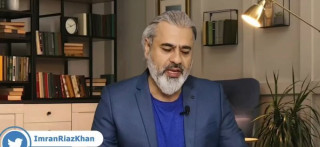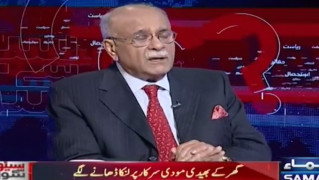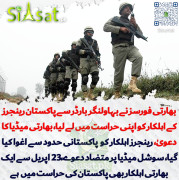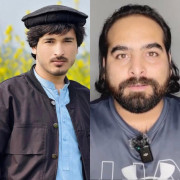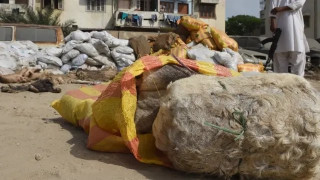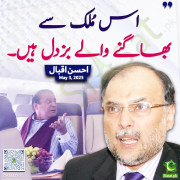Afsr
MPA (400+ posts)
Milad un NABI mubarak to all my Muslim brothers and sisters.
Celebrating such a great event should be done through reading more about the Prophet's Sunnah and life, building mosques, religious institutes and doing other forms of charity work that remind people of the Prophet's life and his struggle.
Therefore, it is permissible to celebrate the Prophet's birthday as an expression of our love to him and our endeavor to follow him as an example provided that these celebrations do not involve any of the prohibited things. Some prohibited things are improper intermingling between men and women, behaving improperly at mosques and partaking in innovations such as worshiping at tombs and other things that violate the teachings of Islam. If such previously mentioned violations surpass the religious benefit realized from these celebrations, then they should be stopped in order to prevent harm and wrongdoing as indicated in the Shari`ah.
We all know that the Companions of the Prophet (peace and blessings be upon him) did not celebrate the Prophet's birthday, Hijrah or the Battle of Badr, because they witnessed such events during the lifetime of the Prophet who always remained in their hearts and minds.
Sa`d ibn Abi Waqqas said that they were keen on telling their children the stories of the Prophet's battles just as they were keen on teaching them the Qur'an. Therefore, they used to remind their children of what happened during the Prophet's lifetime so they did not need to hold such celebrations. However, the following generations began to forget such a glorious history and its significance. So such celebrations were held as a means of reviving great events and the values that we can learn from them.
Unfortunately, such celebrations include some innovations when they should actually be made to remind people of the Prophet's life and his call. Actually, celebrating the Prophet's birthday means celebrating the birth of Islam. Such an occasion is meant to remind people of how the Prophet lived.
Allah Almighty says: (Verily in the Messenger of Allah ye have a good example for him who looketh unto Allah and the last Day, and remembereth Allah much.) (Al-Ahzab 33: 21)
?
By celebrating the Prophet's Hijrah, we should teach people values such as sacrifice, the sacrifice of the Companions, the sacrifice of `Ali who slept in the Prophet's place on the night of the Hijrah, the sacrifice of Asma' as she ascended the Mountain of Thawr. We should teach them to plan the way the Prophet planned for his Hijrah, and how to trust in Allah as the Prophet did when Abu Bakr told him: We could be seen so easily, the Prophet replied saying: "O Abu Bakr! What do you think of two when Allah is their third?" (Have no fear, for Allah is with us.) (At-Tawbah 9: 40)
We need all these lessons and such celebrations are a revival of these lessons and values. I think that these celebrations, if done in the proper way, will serve a great purpose, getting Muslims closer to the teachings of Islam and to the Prophet's Sunnah and life.
Celebrating such a great event should be done through reading more about the Prophet's Sunnah and life, building mosques, religious institutes and doing other forms of charity work that remind people of the Prophet's life and his struggle.
Therefore, it is permissible to celebrate the Prophet's birthday as an expression of our love to him and our endeavor to follow him as an example provided that these celebrations do not involve any of the prohibited things. Some prohibited things are improper intermingling between men and women, behaving improperly at mosques and partaking in innovations such as worshiping at tombs and other things that violate the teachings of Islam. If such previously mentioned violations surpass the religious benefit realized from these celebrations, then they should be stopped in order to prevent harm and wrongdoing as indicated in the Shari`ah.
We all know that the Companions of the Prophet (peace and blessings be upon him) did not celebrate the Prophet's birthday, Hijrah or the Battle of Badr, because they witnessed such events during the lifetime of the Prophet who always remained in their hearts and minds.
Sa`d ibn Abi Waqqas said that they were keen on telling their children the stories of the Prophet's battles just as they were keen on teaching them the Qur'an. Therefore, they used to remind their children of what happened during the Prophet's lifetime so they did not need to hold such celebrations. However, the following generations began to forget such a glorious history and its significance. So such celebrations were held as a means of reviving great events and the values that we can learn from them.
Unfortunately, such celebrations include some innovations when they should actually be made to remind people of the Prophet's life and his call. Actually, celebrating the Prophet's birthday means celebrating the birth of Islam. Such an occasion is meant to remind people of how the Prophet lived.
Allah Almighty says: (Verily in the Messenger of Allah ye have a good example for him who looketh unto Allah and the last Day, and remembereth Allah much.) (Al-Ahzab 33: 21)
?
By celebrating the Prophet's Hijrah, we should teach people values such as sacrifice, the sacrifice of the Companions, the sacrifice of `Ali who slept in the Prophet's place on the night of the Hijrah, the sacrifice of Asma' as she ascended the Mountain of Thawr. We should teach them to plan the way the Prophet planned for his Hijrah, and how to trust in Allah as the Prophet did when Abu Bakr told him: We could be seen so easily, the Prophet replied saying: "O Abu Bakr! What do you think of two when Allah is their third?" (Have no fear, for Allah is with us.) (At-Tawbah 9: 40)
We need all these lessons and such celebrations are a revival of these lessons and values. I think that these celebrations, if done in the proper way, will serve a great purpose, getting Muslims closer to the teachings of Islam and to the Prophet's Sunnah and life.




